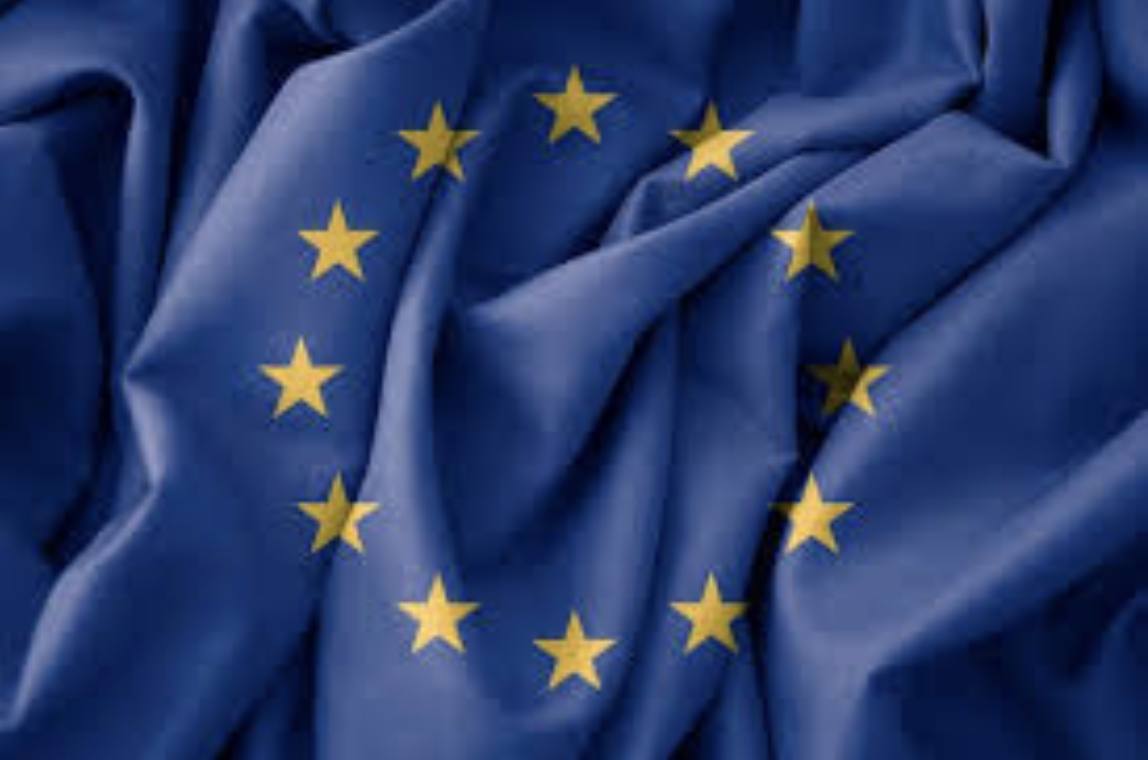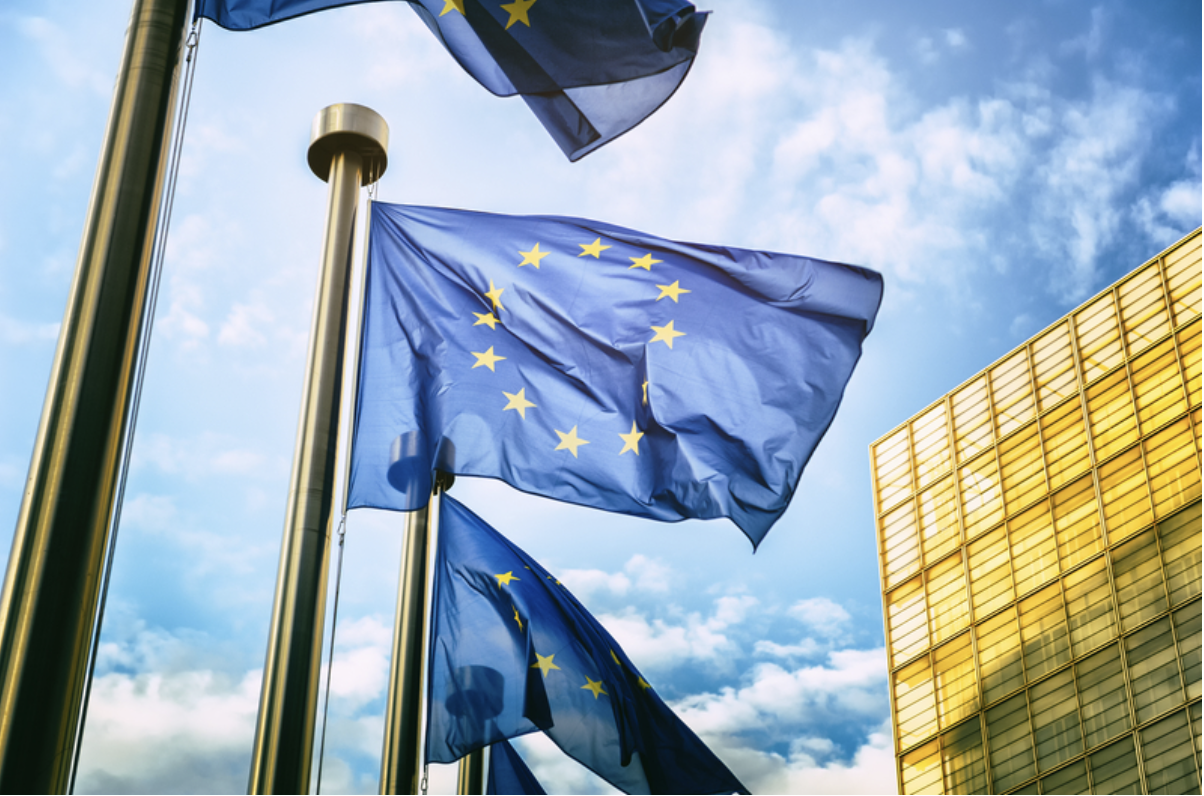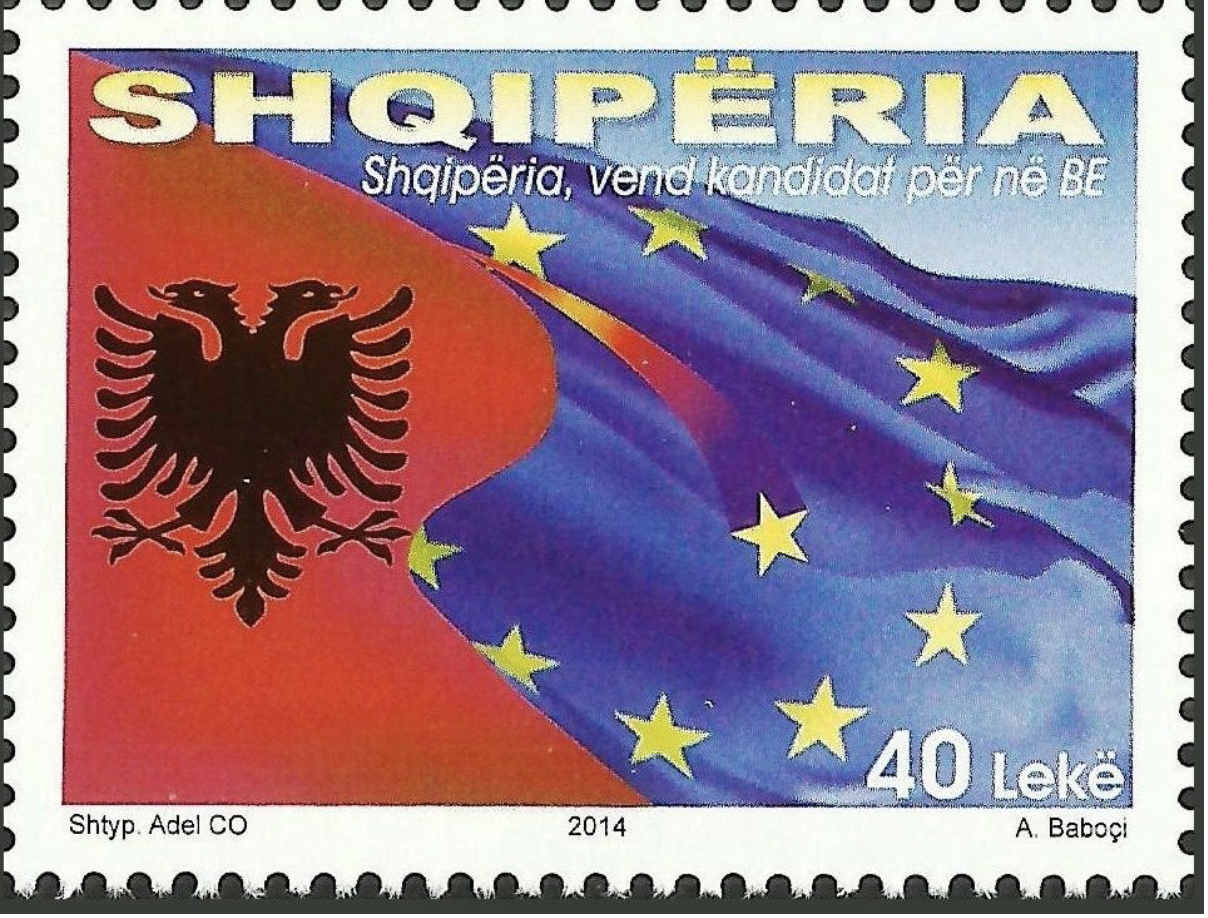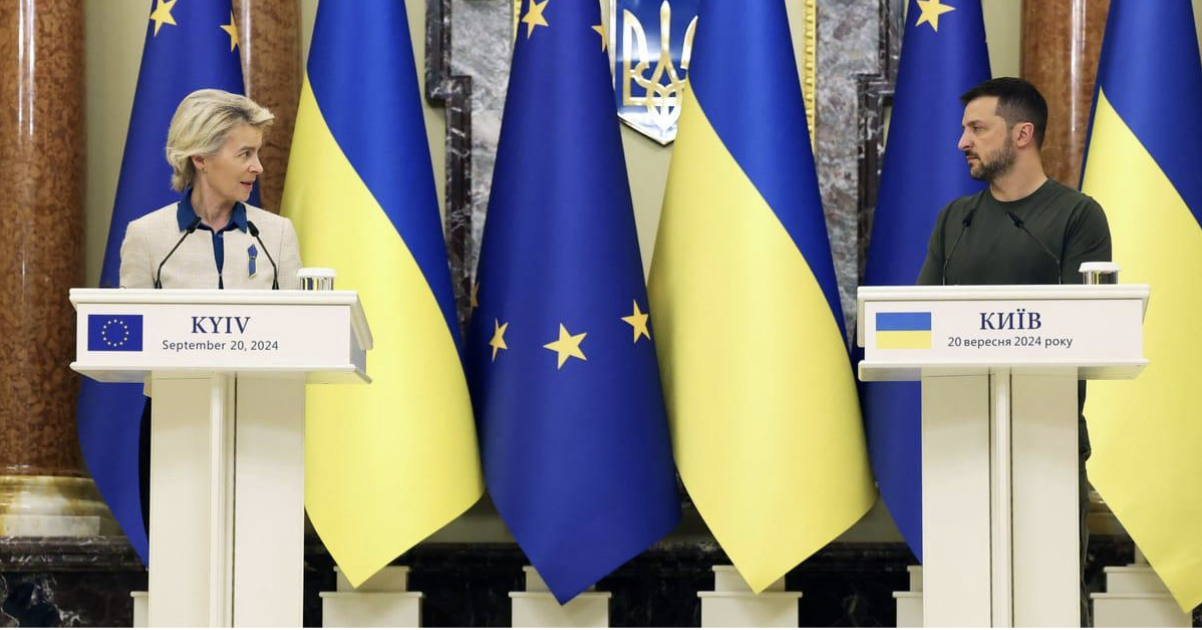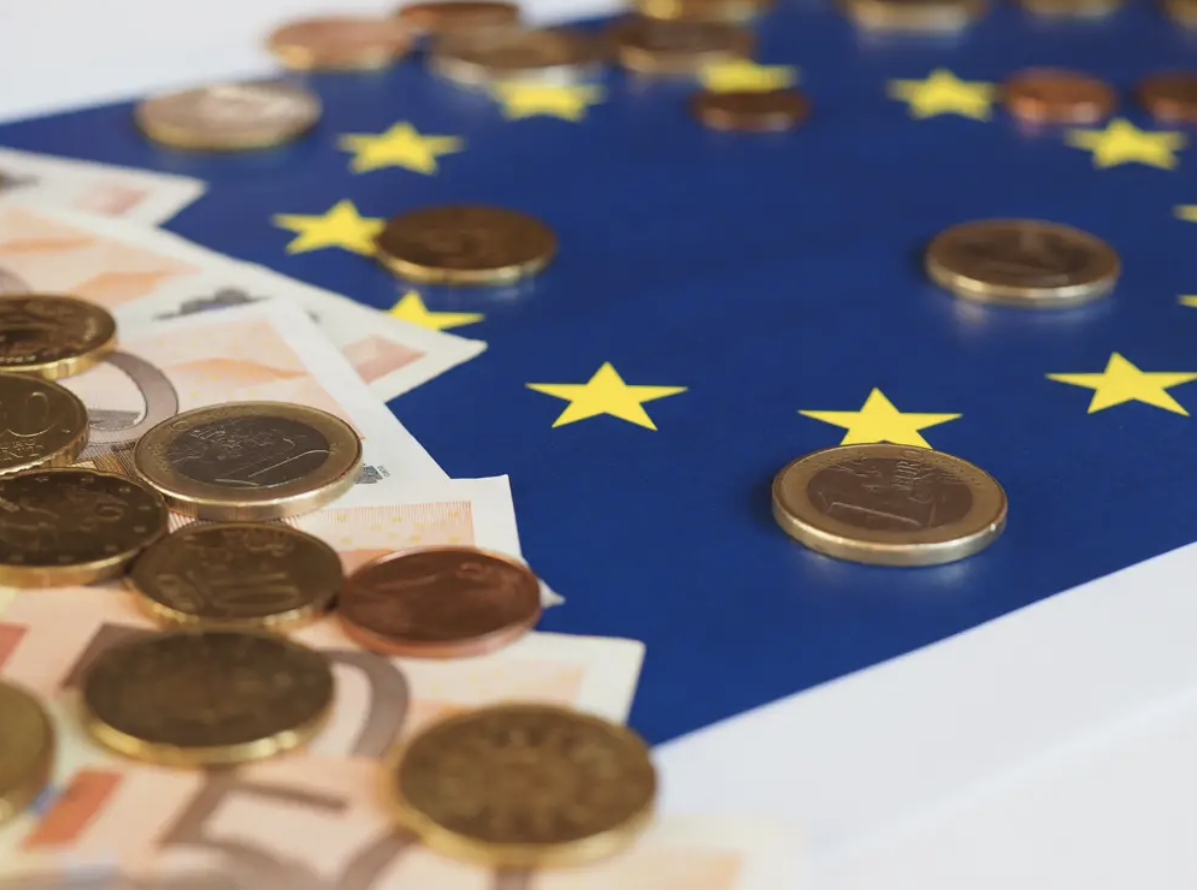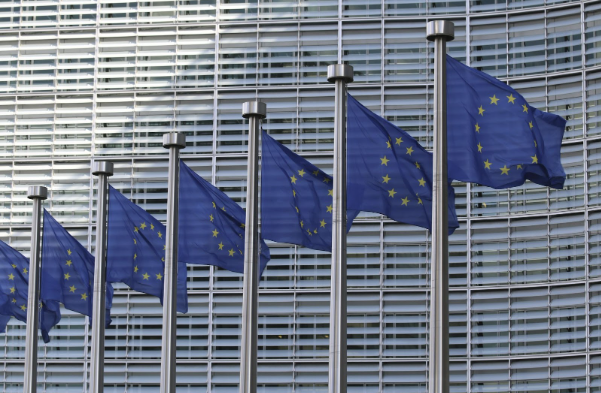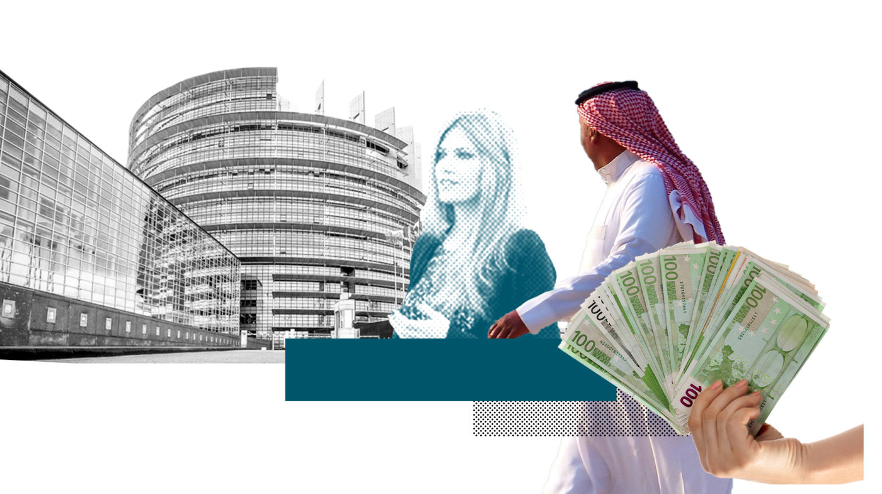
Know Your Union
This category aims at spreading EU-related information and key new initiatives. Hence, it brings together information to make the European institutions and their activities more transparent for students.

By: Olaia Mujika Anduiza
Estimated reading time: 5 minutes
At the beginning of December, I wrote about the need to reform cohesion policy as outlined in the 2021–2027 Multiannual Financial Framework (MFF). Today, I look at the European Commission’s plans to overhaul this policy, published in July 2025 alongside the proposal for the 2028–2034 MFF.
The context is key: the Commission is aiming for a budget that is simpler, more flexible, and more effective. Within this broader push, cohesion policy is set for a major redesign in the same direction.
By Juliane Trabandt, ca. 3min
When we think about the place of literature in society, we can quickly deduce that its main purpose has long been to provide social commentary and to reflect on cultural norms and tensions. Literature is, of course, not the only medium that does this – but it has certainly been one of the oldest. We only have to think of Austen, Shakespeare, or even Euripides. However, as a society, we have moved away from literature as a common frame of reference and turned instead toward digital media. I am not suggesting that literature has become irrelevant, yet in the age of social media it must now fight for our attention and share its cultural space with movies, TV shows, short-form content, and of course, memes. In the digital age, memes – much like literature once did before the internet – function as a medium that communicates ideas, humour, and social commentary at remarkable speed. In this article, I will explore whether memes can carry the same cultural significance and meaning as traditional literature.
By: Olaia Mujika Anduiza Estimated reading time: 5 minutes
Lately, disputes over the next Multiannual Financial Framework (2028–2034) have been making headlines. This is no surprise: the MFF, as the EU’s long-term budget, is central to economic and financial planning and shapes a wide range of EU priorities. As a result, its drafting always involves significant disagreement and negotiation between institutions, political parties, and Member States.
What did come as a surprise this year was that the Commission’s proposal aims to deeply reshape core EU policies, including cohesion policy. In fact, in this policy area, the Commission is even going against the advice of its own key experts on reform options.
To better understand how cohesion policy works today and how the Commission proposes to change it, a concise two-part series on the topic will be published. The first article outlines the current architecture of cohesion policy, while the second will examine the Commission’s proposed reforms.
Let us begin with the first.
By: Gabriel Panza Read time: 4 Minutes
The Balkan country, Albania, known for its cultural tradition of “Besa” and its stunning coastlines, has recently come into the spotlight with its progress towards EU accession. Recently, on November 17th, Albania opened its final cluster of topics needed for EU membership negotiations, covering agriculture and fisheries, food safety, and cohesion policy. This marks a significant step towards Albania’s eventual accession, as accession talks are expected to end by the end of 2027. Prime Minister Edi Rama has claimed that Albania’s accession will be completed by 2030, a claim initially met with skepticism. However, given that EU negotiation processes have gone swimmingly, Albania’s goal of accession by 2030 appears increasingly likely. But what is the history of Albania’s accession to the EU? And what kind of relationship has Albania fostered with the EU?
By Seán Doherty, reading time: 3 minutes
The EU has, for some time now, been deliberating on how to keep funding its military support for Ukraine, as well as financing the rebuilding of the country when the war eventually comes to an end. The need for a collective European solution to this issue has been exacerbated since Donald Trump regained power in the US. Since his January 2025 return, the President has stated several times that his nation would cut support for Kyiv if no progress on a ceasefire agreement was made. Since then, the US has halted all military and financial support, instead sending weapons only on the condition that these weapons are paid for by other NATO countries.
By: Lavinia Tacke, reading time: 3 minutes
The Commission's proposal for the new annual budget is officially out! But now it is up to the Council and the Parliament to decide on the EU’s spending in 2026. The initial drafts aim to reinforce competitiveness, continue support for Ukraine, strengthen security and defense, and advance green and digital transitions. The draft 2026 budget includes some ambitious plans as it aims to address “recent, unpredicted developments”. However, there are conflicting opinions from the Parliament and the Council as they enter the negotiation stage.
By Gabriel Panza, reading time 4minutes 50 Seconds
Imagine a vibrant hub of economic collaboration that spans an entire continent—South America’s Mercosur is exactly that. Mercosur directly translates to the Southern Common Market and is a trade bloc that aims to boost economic integration across the region. What is its primary mission? To create a competitive field where national economies can collaborate, encourage business growth, and attract investment opportunities. Since its creation, Mercosur’s Founding members have sought to expand their markets by establishing international agreements to open their markets to all other continents. Today, this ambitious trade bloc stands tall among the top 5 world economies, forging cooperation accords with nations worldwide. As Mercosur continues its global expansion, it is not only shaping the future of trade but also opening new opportunities that could soon affect you.
By Anna-Magdalena Glockzin, Reading time: 2 min
In the context of the myriad of geopolitical events that happen very quickly, the EU’s head of foreign affairs Kaja Kallas features prominently on the international stage. For example, in her direct statements against Russia and in favour of committed (military) support for Ukraine (“The EU wants Ukraine to win this war”). She has been in office since December 2024, having the role of the High Representative for Foreign Affairs and Security Policy and Vice-President of the European Commission. But who is Kaja Kallas and what has she done so far? Time to take stock.
By Emma Guastone (EG) & Federico Fo (ECA Maastricht), Reading time: 5:15 minutes
In recent years, the world has witnessed a considerable increase in international tensions, becoming extremely dangerous from this point of view. In this regard, acts of terrorism have become a standardized tool to increase international instability. Thus, obliging countries to look for new solutions to support counterterrorism operations. Particularly, Europe has made considerable progress when referring to European collaboration to fight terrorist threats. While most of the competences for counterterrorism are held by individual States, the collaboration among them is supported on many levels by a series of different international organizations independent from each other. Nominally, these institutions consist of the European Union (EU), the Council of Europe and the North Atlantic Treaty Organization (NATO). This article aims to explore in what way these organizations support the already mentioned collaboration.
By Anna-Magdalena Glockzin, 3 minutes.
Following up on the first article on the New European Commission, this piece will take a closer look at the Commissioner hearings that the European Parliament conducted in order to “investigate” the potential candidates for the New Commission. This way MEPs ensure that the candidates are fit for the job and, at the same time, that MEPs have some influence in the selection process of the Commissioners, who will then be responsible for drafting laws and setting the political agenda. However, whether the persons who are nominated for the job are actually suitable might be a secondary criterion. Strategic decisions and party politics play an important role too. In order to perform well in the hearings, the candidates have to study the entire EU legislative acquis in one month, they can get used to the process by engaging in mock hearings (although most of the nominees don’t do that, which might be a question of ego, since these mock hearings are conducted by their staff), and they have to practice a fair amount of lobbying with the MEPs. But which were the most interesting hearings?
By Anna-Magdalena Glockzin, 3 minutes.
Finding a team that works well together and is fit for the job is always a big challenge. But if one has to take into account preferences of third parties and the political messages attached to the team’s selection, it gets even messier. However, this is the task that European Commission President (of the current as well as the new Commission) Ursula von der Leyen had to manage when nominating her new team of Commissioners. But let’s start from the beginning.
By Tillie Morris, 6 minutes.
The re-election of the pro-European Prime Minister in Poland, Donald Tusk, stirs questions about whether the alliance between Poland, Germany, and France will be the stronghold for Europe’s future.
By Federico Fo, 6 minutes.
Maastricht set the stage for the 2024 Elections for the European Parliament. Eight Spitzenkandidaten have started their election campaigns for their European parties and faced off in a fierce debate. All eyes lie on the current Commission President Ursula von der Leyen, seeking re-election for another five year term. Yet, candidates from the far left to the far right were convinced that they can halt her quest and swing the vote in their favour.
By Carlo Civitarese, 12 minutes.
Maastricht set the stage for the 2024 Elections for the European Parliament. Eight Spitzenkandidaten have started their election campaigns for their European parties and faced off in a fierce debate. All eyes lie on the current Commission President Ursula von der Leyen, seeking re-election for another five year term. Yet, candidates from the far left to the far right were convinced that they can halt her quest and swing the vote in their favour. Heated Topics on Foreign and Defence Policy, EU Democracy and Climate Change will decide who will lead Europe in this time of instability and change.
By Tillie Morris and Carlo Citivarese, 8 minutes
Organised by Politico, the Maastricht debate was held on the 29th of April, and they invited seven candidates who are running for the position of European Commission president. The candidates had the opportunity to share their positions on three topics, climate change, foreign and security policy, and EU democracy chosen by young people through a Maastricht University survey. A focus of the event was to include young people in EU politics, which was evident as many student and youth-oriented associations, such as ECA, the European Youth Parliament and Studio Europa were invited to the event.
By Nora Fotini El-Awdan, 8 minutes.
On Monday, April 29, 2024, the lead candidates (“Spitzenkandidat:innen”) of eight European parties faced-off against each other at the “Maastricht Debate 2024.” The contenders presented and defended their respective visions for the future of Europe ahead of the European Parliament elections in June. The key topics of the debate were selected by Europe’s youth based on a survey conducted by Maastricht University: (1) Climate change, (2) Foreign and Security policy and (3) EU Democracy.
By Sarah Hourquet (MD) & Nurbolat Kambekov (B&Y), 7 minutes.
This article is the first in our collaboration with the Blue & Yellow, the blog of the European Career's Association. We will publish a few different pieces through various media on the upcoming European Parliament Elections happening from 6 to 9 of June 2024. So, keep a look out for this and don't forget to go vote! As this is a collaboration, two writers, one of each journal, have written this piece together.
By Kristoffer Sætre, 7 minutes.
The EU is currently sending a lot of weapons to Ukraine. But wait, aren’t member states such as Austria, Ireland and Malta neutral? Are neutral states allowed to send military aid to states in war? Read this article to answer these questions and find out more about neutrality under international law and its relevance for EU member states.
By Nora Fotini El-Awdan, 8 minutes.
On Tuesday, November 7, 2023, the ECA set off on a two-day study trip to Brussels. It turned out to be a great mix of institution and media visits, networking events, and presentations. We participants returned with a backpack full of new knowledge on career opportunities. Here an overview of the highlights, main takeaways, and a list of links to start off your career in the European Union (EU).
By Jan Herniczek, 5 minutes. The ongoing war in Ukraine has already dramatically changed our world. Finland and Sweden decided to break their decades-old neutrality and join NATO. But why were they neutral in the first place? And what do the Turkish election have to do with NATO membership?
By Eleonora Pizzini, 7 minutes. Working in or for one of the European Institutions implies, in practice, a very good knowledge of at least two foreign languages. Despite 24 official ones, the so-called procedural languages are just three: English, French and German. How important is it to know at least two of them? And why over time many doubts and malcontent have risen across the choice of these three languages?
By Aari Helmelaid, 7 minutes. In December 2022, shocking revelations of corruption and acceptance of bribes from Qatar and other third countries in the European Parliament came to light, involving some of Europe’s top and former politicians like Eva Kaili and Antonio Panzeri. Since then, various suggestions have been debated to rebuild its reputation and reform the European Parliament to become a transparent and corruption-free institution, ranging from prohibiting unofficial friendships with third countries, to creating a whole new EU body specifically responsible for ensuring internal institutional ethics. Read the article to find out the main actors, the hidden criminal networks, and what the future might look like for the European parliament.
By Clara Pastor Hernández, 10 minutes. Human Rights Defenders (HRDs) are individuals or organisations who seek the promotion and protection of civil and political rights as well as the promotion, protection and realisation of economic, social and cultural rights. However, despite their huge efforts towards development and the improvement of living conditions, they are being systematically attacked and silenced through violence in countries with high rates of violence, corruption or autocratic regimes. This article examines the role of the EU as regards the protection of HRDs, and more particularly, it presents Protect Defenders, an EU-funded mechanism coordinated by Civil Society Organisations (CSOs) offering protection and support to HRDs and raising awareness about this topic.
Sara Saccon, 5 minutes. Every 18 months a group of three member states of the Union holds the presidency of the Council of the European Union, one of the most important European institutions. The trio composed of France, Czech Republic, and Sweden is coming to an end, as Sweden’s mandate will terminate on the 30th of June. What challenges have the three presidencies encountered during the past year and a half? How have they dealt with them? And, most importantly, what now? Read our article to learn more!
By Aari Helmelaid, 11 minutes. So you’ve looked at your own Spotify Wrapped for 2022, but have you thought about which countries in Europe held elections in the last year? Read the article to find out about major elections that changed European politics.
By Beatriz Santos Mayo, 9 minutes. The DiscoverEU Interrail Scholarship has been made available to everyone by the EU for several years. 60,000 young people are able to traverse the European continent for free thanks to this initiative's free rail passes. Read more about the Interrail scholarship program, which enables you to visit Europe for free with DiscoverEU in this article!
By Nurbolat Kambekov, 3 minutes. In the age of accelerated technological growth, many governments across the world are concerned about their levels of innovation. Fortunately, the EU is pioneering trend-setting policies to address such challenges. Learn more about the EU’s technological initiative discussed in our recent article.
By Aari Helmelaid, 6 minutes. The European Ombudsman occupies a unique position as an independent supervisor between the EU institutions and European citizens. The contribution made by the European Ombudsman to transforming the administrative practices and pressuring European institutions, bodies, and agencies into better conduct cannot be underestimated, read the article to find out more of the role that the European Ombudsman plays in the EU world…
By Aydin Clara Orberk, 13 minutes. Are you familiar with the court structure and access to courts in the EU? With the creation of the EU and the recent Charter of Fundamentals rights of the EU, individuals may seek access for infringements to their rights not only before national courts, but also before the European Court of Justice. This article covers access conditions to European courts, firstly, and exemplifies the access conditions by introducing climate litigation cases, secondly.
By Leonie Klüver, 6 minutes. Lobbying - what exactly does it mean and how does it tie into the political system? Why is it crucial for the legislative process and a valuable aspect of a democratic political system? Read the article to find out the answers! Within the last two centuries lobbying has become an essential part of politics. In Europe, Brussels is the major hub for lobbying with 11,800 registered lobbying entities.
